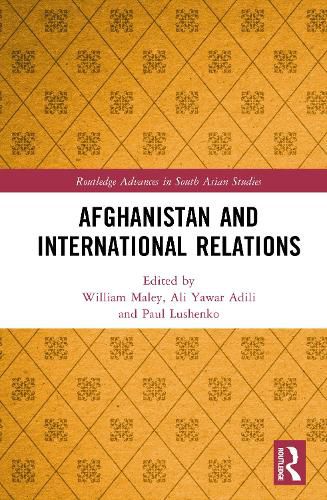Readings Newsletter
Become a Readings Member to make your shopping experience even easier.
Sign in or sign up for free!
You’re not far away from qualifying for FREE standard shipping within Australia
You’ve qualified for FREE standard shipping within Australia
The cart is loading…






This book explores various dimensions of recent international relations scholarship, taking the case of Afghanistan as a point of departure for discussion of these different themes.
Contributors investigate a broad range of topics, including international relations theory, the nature of global order, 'othering' discourses, diplomacy, international law, the transformation of war, terrorism, gender politics, social media, state building, democratisation, refugee movements, globalisation, and historical lessons. The Afghanistan case helps illuminate the complexities of all these areas of analysis, and the book takes the analysis of Afghanistan in new directions. Theoretically, the authors interrogate the Afghanistan case's implications for international relations, and vice-versa, by integrating multiple and complementary global or structural, state or institutional, and behavioralist or leader-centric lenses. Conceptually, the chapters bridge the gap between theory and practice, thus reflecting the emergence of a problem-oriented approach to international relations scholarship. Methodologically, the research design employed by the authors is best characterised as 'analytical eclecticism'. The majority of contributors originate from Afghanistan, something which again makes this book notable, and all three editors have extensive experience from time spent in Afghanistan.
Using the Afghan case to explicate the importance of the relevance of theory and its related concepts to international relations studies, this book will be of interest to researchers in the field of international relations, Asian and Middle East Studies.
$9.00 standard shipping within Australia
FREE standard shipping within Australia for orders over $100.00
Express & International shipping calculated at checkout
This book explores various dimensions of recent international relations scholarship, taking the case of Afghanistan as a point of departure for discussion of these different themes.
Contributors investigate a broad range of topics, including international relations theory, the nature of global order, 'othering' discourses, diplomacy, international law, the transformation of war, terrorism, gender politics, social media, state building, democratisation, refugee movements, globalisation, and historical lessons. The Afghanistan case helps illuminate the complexities of all these areas of analysis, and the book takes the analysis of Afghanistan in new directions. Theoretically, the authors interrogate the Afghanistan case's implications for international relations, and vice-versa, by integrating multiple and complementary global or structural, state or institutional, and behavioralist or leader-centric lenses. Conceptually, the chapters bridge the gap between theory and practice, thus reflecting the emergence of a problem-oriented approach to international relations scholarship. Methodologically, the research design employed by the authors is best characterised as 'analytical eclecticism'. The majority of contributors originate from Afghanistan, something which again makes this book notable, and all three editors have extensive experience from time spent in Afghanistan.
Using the Afghan case to explicate the importance of the relevance of theory and its related concepts to international relations studies, this book will be of interest to researchers in the field of international relations, Asian and Middle East Studies.